Now more than ever, the quality of the raw materials that go into any supplement - and, of course, the finished product - is unquestionably of vital importance to the consumer. At Hammer Nutrition we understand this and take this very seriously, which is why we chose firms that had the qualifications to meet the standards of quality and excellence we demand.
GMP (Good Manufacturing Practices):
Companies that employ Good Manufacturing Practices in the production of goods are able to offer quality products on a consistent basis. It is not enough to simply attempt to make quality goods. Adherence to GMP requires dedication to quality and development of a program that allows a company to measure their results against recognized standards of quality. Organizations like NSF and SQF were established to facilitate this. Their presence, as auditing entities, allow companies to achieve quality standards that ensure their products are of the quality level that discerning customers not only expect, but demand.
NSF registration and SQF certification ensures that the manufacturers meet all the standards of quality that translate to consistency and accuracy in regards to Quality Assurance and Quality Control of:
- Facilities
- Staff
- Safety
- Sanitation
- Ingredients
- Batching
- Processing
- Packaging
- Documentation
- Shipping
- Product Support
The Manufacturers Hammer Nutrition selects? Only the best!
As an example, the primary manufacturer of Hammer Nutrition supplements has been involved in natural health for over forty years. This is their Mission Statement/Treatise, as stated on their web site:
We operate our own manufacturing facility and distribution center under GMP to ensure quality though every step of production. From research and development, through formulation, processing, packaging, and distribution, you can be assured that our staff is dedicated to quality in all aspects of our operation. We continually strive to provide our customers with exceptional products, using the finest ingredients, from the best sources, processed with utmost diligence, delivered at competitive prices, without sacrificing potency or quality.
We at Hammer Nutrition, of course, visit their facility several times throughout the year and every time we find it to be spotless and sanitary beyond one's imagination:
- Every employee handling raw materials or finished products wears the equivalent of a hazmat suit.
- The machinery is meticulously cleaned and sanitized frequently via a rigid time schedule. According to our manufacturer: All food contact surfaces of machinery and utensils are thoroughly cleaned via dry wiping/brushing and vacuuming after they are used for EACH product AND at the end of EACH work day. Any residue that cannot be removed via these dry cleaning methods is removed with isopropyl alcohol-assisted wet brushing and vacuuming. Machinery and utensils are then thoroughly sanitized via alcohol wiping with disposable towels, and are placed in closed sanitary bins, covered with plastic sheeting, or sealed via their own enclosures to protect their food contact surfaces while not in use. Machines and utensils are always re-checked for proper sanitation prior to use on the next product. This applies to all surfaces of the equipment and utensils that come in contact with the ingredients and components that are specified as food grade contact."
- Special ventilation units are in place in specific areas of each room to ensure that the dust-free/sanitized nature of every room is maintained at all times. In essence, every room is a cleanroom.
Even the floors of the warehouse are diamond polished, which helps maintain the cleanliness of the surface and the integrity of the concrete.
Obtaining the finest ingredients
As you can imagine, it is a multi-step process from the ordering of raw materials to finished product. The first step is, of course, procuring the finest raw materials available. Regarding that, the primary manufacturer of Hammer Nutrition supplements requires that all potential suppliers provide a Certificate of Independent Laboratory Analysis - covering no less than 15 specific items - with EVERY shipment of raw material. Some of these specifics are:
- Material Lot Number
- Material's Country of Origin
- Date of Manufacture
- Statement of Shelf Life and description of means used to determine Shelf Life, along with a degradation or activity loss curve for a 5-year period from date of manufacture, and storage conditions required to maintain optimum conditions.
- Statement of, and References to, Industry Accepted Methods of Analytical Processes used to establish Raw Material Identity and Purity, and results of such analysis. (Must be detailed and include the Name, Contact Person, and Phone Number of the Independent Laboratory that conducted Identity Testing).
- Statement of, and References to, Industry Accepted Methods of Analytical Processes to establish that Raw Material meets FDA standards for microbial content, heavy metals, solvents, and pesticides, and results of such analysis. (Must be detailed and include the Name, Contact Person, and Phone Number of the Independent Laboratory that conducted this Testing).
- Allergen Statement as to absence or presence any of the following substances in the product, or if any of the following substances were used in the process that resulted in the final product - Milk, Eggs, Fish, Crustacean Shellfish, Tree Nuts, Wheat Peanuts, Soybeans.
- Statement of exact original source of material and/or exact original source from which the material was extracted or otherwise derived. (an example would be if Glucosamine was derived from crab, lobster and shrimp)
- Statement of exact original source of any materials added to the named material and/or exact original source from which any materials added to the named material were extracted or otherwise derived.
In addition, if any type of botanical product is used in a formula, a 27-point questionnaire (formally called a Botanical Supplier Reliability Audit Checklist) must be completed by would-be suppliers. This questionnaire covers the following topics:
1. In the Field - In this section, questions such as these must be answered in detail:
Are material gatherers trained in identification and collection issues?
Are records kept of collection dates and locations?
Are collected materials properly stored and protected from the environment?
2. Botanical Processing - In this section, questions such as these must be answered in detail:
Are raw materials and in-process material containers clearly identified with contents and batch identification?
Does a trained technician perform sampling?
Are materials handled, identified, and stored in a manner that will prevent damage, contamination, mix-ups, and errors?
Are products properly stored under appropriately controlled temperatures and humidity?
3. Testing - In this section, questions such as these must be answered in detail:
Is suitable laboratory equipment available to perform all required tests?
Are product specifications developed, reviewed, approved, and established in writing by a competent individual?
Are product tests performed at appropriate frequencies to assure consistency and compliance with all product specifications?
Is laboratory equipment calibrated at appropriate intervals?
Do competent and trained individuals perform product testing?
All of these steps ensure that our manufacturer is receiving only high quality ingredients from reputable vendors.
Where do the raw materials come from?
The saying "you get what you pay for" is usually applicable when purchasing pretty much everything, and it's especially true when it comes to nutrients, be they vitamins, minerals, herbs, or otherwise. When we at Hammer Nutrition formulate a product, the first thing we do is decide how much of what ingredient is necessary to provide an efficacious effect, keeping in mind that capsule content availability/ limitations and the cost-to-consumer are but two things we have to take into account.
The most important factor, however, is procuring the best possible raw materials. We're fortunate that our manufacturers do this painstakingly-long process for us, as per our unflinching requirements/specifications, sourcing materials from a variety of possible suppliers, using the very stringent requirements that were listed earlier. Once one or more potential raw material sources have been obtained, our manufacturers provide us with a number of options to choose from. Quite often, with much time spent in the process, decisions have to be made in regards to the cost/benefit ratio of a certain nutrient. In other words, a specific form of a given nutrient may be priced so high that its inclusion in a Hammer Nutrition product - even at minimal levels - cannot be justified, due to the cost burden on the consumer. If this is the case (and it rarely is), we look for the best alternative.
Most importantly, though, we NEVER cut corners when it comes to the quality of raw materials; we obtain only the finest available and never sacrifice quality simply for the sake of a lower price. We always try to obtain raw materials from the primary manufacturer of said materials, assuming of course that these nutrients meet both our and our manufacturers' demanding requirements. The overwhelming majority of the time, this means US-based suppliers, though there are other suppliers that produce certain nutrients that are superior grade to any other country.
Historically, Chinese-sourced raw materials have been typically categorized as less than desirable. The cost of these materials was/ is usually lower than other sources, but oftentimes the quality of the product was suspect. There have been significantly positive changes regarding the quality of Chinese-produced raw materials over the past few years. However, it has been - and continues to be - Hammer Nutrition's policy to use Chinese-sourced materials only when world-wide supplies are low- to-unavailable and/or when Chinese-sourced materials are our only option. In those rare instances, these particular nutrients are constantly scrutinized even more closely to make sure no sub-par quality ingredients are even delivered.
From beginning to end - How a Hammer Nutrition supplement is made
Here are the primary steps of the process that our primary manufacturer goes through when producing each and every bottle of a Hammer Nutrition supplement:
4. Purchase Order - The purchase order arrives, at which time the Account Representative confirms it with the client (Hammer Nutrition).
5. Batch Record Initiation - The Process Manager assigns batch and lot numbers to each of the items/ingredients/nutrients that are on the purchase order.
6. Raw Inventory Check and Order - The Process Manager checks the current inventory for available raw materials and, if available, assigns those materials to the Batch Record. If additional raw materials are needed, the Process Manager orders more. Batch Record Generation - The Process Manager generates a Batch Record for each item/ ingredient/nutrient on the purchase order.
7. Master Batch Record QA (Quality Assurance) Check - The Quality team ("Quality") then checks the accuracy of the Batch Record vs. the Master Batch Record. If 100% accurate, the Quality signs off on Batch Record for processing and returns signed Batch Records to the Processing Supervisor.
8. Issue Batch Record - The Process Supervisor Issues Batch Record to the Blending Technician for batching.
9. Weighing Batch - The Mix Bench Technician weighs all ingredients.
10. Quality Assurance Check - Quality signs off on weight.
11. Milling Batch - The Mix/Mill Technician mills certain ingredients to ensure smoothness and eliminate clumping.
12. Quality Assurance Check - Quality signs off on post-blend weight.
13. Testing Batch for Encapsulation - The Encapsulator/Mix Bench Technician tests the product based on historic use or calculation. Prior Batch comparisons are performed, if needed.
14. Quality Assurance Check - Quality signs off on tests or repeats testing.
15. Re-Mixing Batch - The Mix/Mill Technician re-blends all the ingredients to a homogenous consistency after testing is approved.
16. Quality Assurance Check - Quality inspects blended materials. If approved, the Process Supervisor/ Manager signs off on full-run blending.
17. Encapsulation - The Encapsulator Technician encapsulates product consistency after testing is approved.
18. Quality Assurance Checks - During the encapsulation process, 15-minute checks are performed by the Encapsulator Technician, along with MBWA (management by walking around) by a number of Managers. Quality confirms weight accuracy hourly.
19. Polishing - The Encapsulator Technician polishes each finished capsule to remove ingredient dust.
20. Quality Assurance Check - Once analyzed and approved, Quality releases polished capsules for packaging. Only a Manager can move pills from process and polishing to packaging.
21. Packaging Check-In - The Process Supervisor/Manager assigns batch to packaging line.
22. Line Set-Up - Packaging Technicians set up line to specifications for product. They select and apply labels for given product.
23. Quality Assurance Check - Quality checks to ensure line is accurate for the product, with special attention given to the labels.
24. Runs Batch through Line - Packaging Technicians perform various tasks to package capsules in bottles. MBWA inspections are performed frequently during the process.
25. Cartoning - Packaging Technicians pack bottles per specifications for shipping.
26. Quality Assurance Check - Quality inspects cartoning procedures to ensure that shipment amounts meet specifications for a given shipment.
27. Shipping - The Shipping Clerk records and ships product as per purchase order.
28. Quality Assurance Check - Management checks to ensure that the shipment amount, record, and method are accurate.
29. Archiving - The Shipping Clerk archives a bottle of each batch of product.
Another example of quality control emphasis
Here is but a fraction of the information regarding quality control that one of our other manufacturers implements:
Quality Policy: The policy on quality observed is that quality, above all else, shall be maintained at the standards set by procedures and training and shall not deviate from those standards.
Interpretation of Lab Data: Following compounding and prior to packaging, a sample of each product is sent to [the manufacturer] for analysis. Upon completion of testing, a test result form is issued. It is the responsibility of the Quality Assurance Unit to interpret these results and deem the product as Passed or Failed based on predetermined specifications.
Monitoring of Production: Prior to the packaging of any product, it is the responsibility of the Quality Assurance Unit to verify that the packaging staff has obtained the correct product, containers, closures, safety seals, and that the cartons/boxes the final product is to be packaged in are correct. It is also the responsibility of the Quality Assurance Unit to verify that the correct lot number and/or expiration date is printed on the product and box labels, as well as verifying that other label information is correct. The Quality Assurance Unit is also responsible at this point for ensuring that the proper Equipment Logs have been completed correctly.
Releasing of Products for Distribution: Upon completion of the packaging portion of the manufacturing process, the Quality Assurance Unit is notified that the product is ready for release. The Quality Assurance Unit is responsible for verifying that the product count matches the reported count on the batch record and that the number is within the specified range. The Quality Assurance Unit is also responsible for verifying the correct completion of the Ship Out Log and the Equipment Logs. When deemed releasable, a member of Quality Assurance signs the release portion of the Batch Record and notifies the Shipping/Receiving department that the product is ready for distribution.
Summary
As you can see, the process involved in producing a Hammer Nutrition supplement is extremely involved; this is just the tip of the iceberg. We also want to emphatically stress that the facilities that make our products are banned substance-free facilities, so cross-contamination is not even possible. You can use Hammer Nutrition products with complete confidence, knowing that each and every one is produced using only the highest quality ingredients and that every necessary step to ensure the highest quality product is taken. We wouldn't have it any other way.
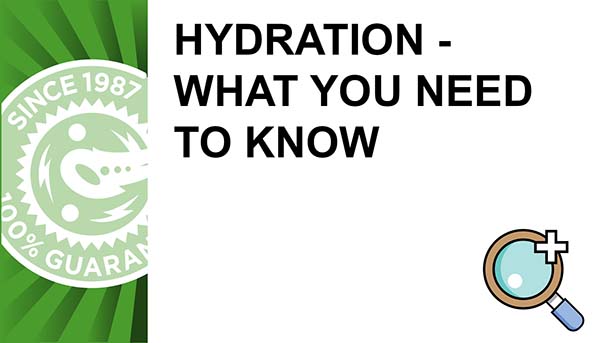
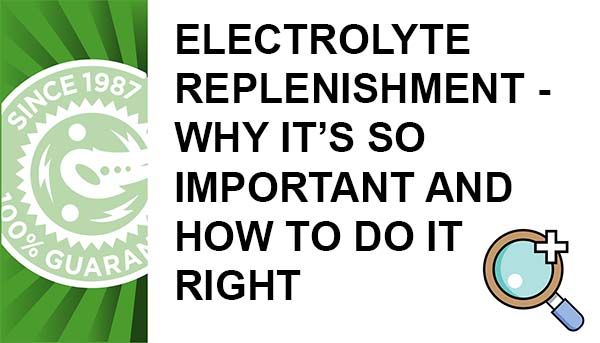
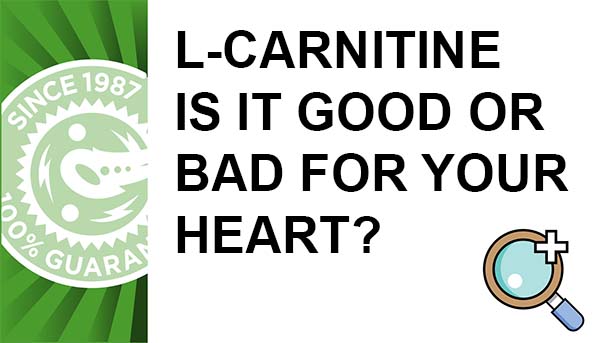
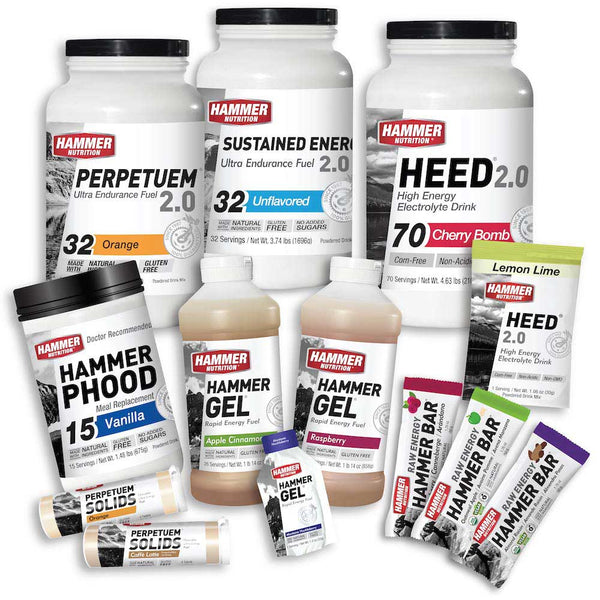
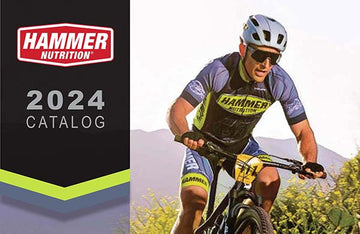

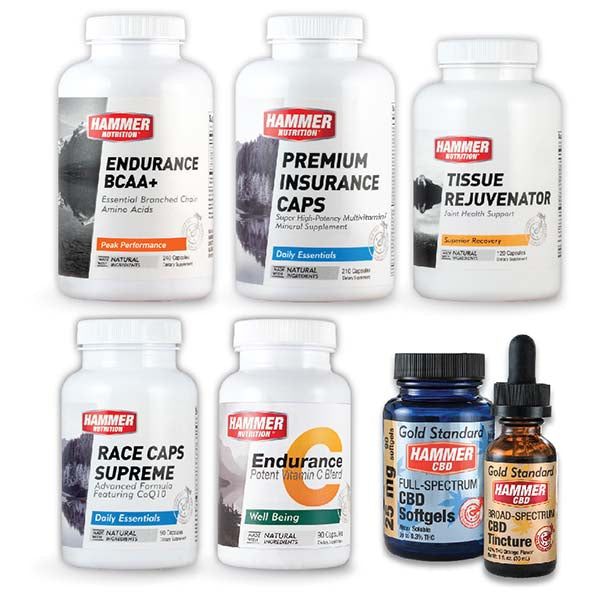
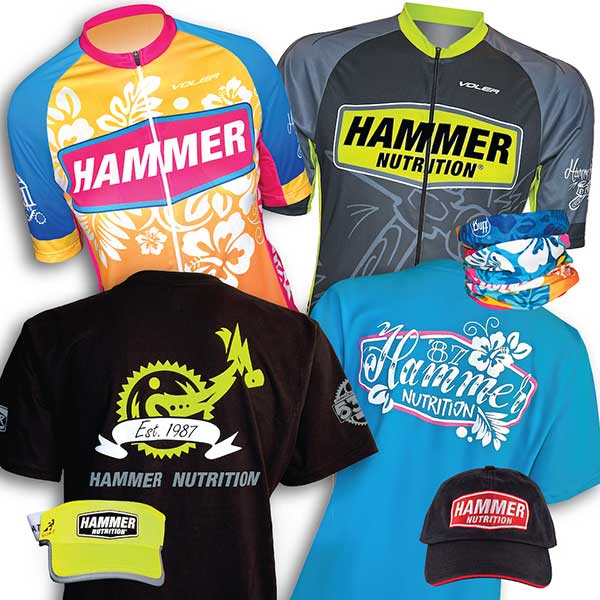
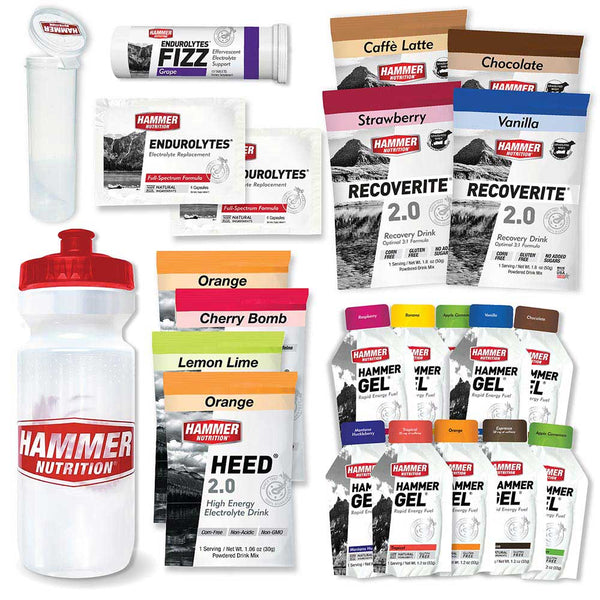
1 comment
Does Hammer do any third party verification of their supplements?
———
Hammer Nutrition replied:
Hello Andie, Thank you for your question! Yes, every Hammer Nutrition supplement is 3rd party tested in compliance with the FDA’s regulations, 21 CFR Part 111 – Dietary Supplements. All the raw materials for each supplement we produce are tested for purity, strength, identity, and integrity. In addition to raw material testing, every Hammer Nutrition supplement is also tested in every stage of production—blending, encapsulation / powder-filling, packaging components and finished goods—before being released for distribution. – LA